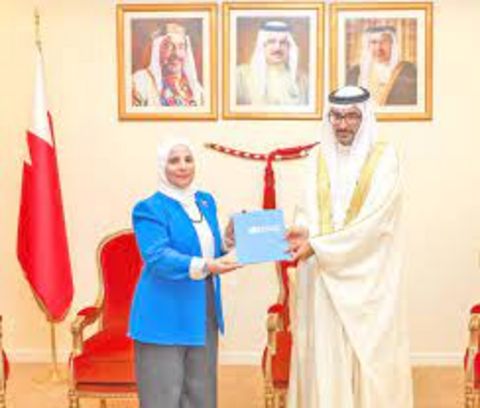Three governorates on track for ‘healthy’ tags

Three of Bahrain’s four municipal regions are on track to be certified as ‘Healthy Governorates’ as part of the kingdom’s commitment to keeping health high on its social agenda.
The World Health Organisation’s (WHO) Healthy Cities Programme will be expanded beyond individual cities to the entirety of the Capital, Northern and Southern Governorates.
During an interview with the GDN, WHO representative and head of its Bahrain office Dr Tasnim Atatrah noted that these three governorates are ‘making history by catalysing political leadership and participatory governance to ensure long-term urban resilience to health risks and crises beyond the scope of mere cities and towards broader administrative divisions’.
In 2018, Umm Al Hassam was the first city to be designated as a Healthy City, followed in 2021 by Manama, which became the first capital in the WHO Eastern Mediterranean region to earn the Healthy City distinction.
Last year, Busaiteen and A’Ali were also awarded the Healthy City distinction, bringing the total number in the country to four.
On July 24, the Capital Governor Shaikh Rashid bin Abdulrahman Al Khalifa signed a letter of collaboration with the WHO office in Bahrain to work towards the distinction, followed by Northern Governor Ali Al Asfoor on August 14 and Southern Governor Shaikh Khalifa bin Ali bin Khalifa Al Khalifa on September 4.
The move towards Healthy Governorates is the latest in efforts by the WHO country office in Bahrain to collaborate with the government and offer best public health practices across the region.
“Our primary goal is to establish the WHO Country Office as a flagship destination for expert guidance and best practices for advancing health and well-being, not only in Bahrain but also in the Eastern Mediterranean region and globally,” Dr Atatrah added.
“One example in this regard is the launch of our case studies report that documents Bahrain’s strategic response to the Covid-19 pandemic and showcases best practices to guide emergency preparedness and response efforts in the region and beyond.
“Our partnership with the Health Ministry has helped us organise the first country-level simulation exercise training of trainers in the WHO Eastern Mediterranean region in February this year to strengthen Bahrain’s prevention, preparedness and response to various public health emergencies.
“Similarly, our partnership with the Supreme Council for Health, Ministry of Health, and Primary Healthcare Centres has allowed us to launch an initiative to identify the health workforce requirements at the primary healthcare level using WHO’s Workload Indicators of Staffing Needs methodology.”
The WHO has also established collaborating centres for nursing development at University of Bahrain and for health professionals’ educational development at the Arabian Gulf University.
According to Dr Atatrah, these centres ‘form a part of an international collaborative network designated by the WHO director-general to support WHO’s work’.
The Bahrain team at the WHO’s overall objectives come within the ‘Triple Billion’ targets laid out in the global organisation’s overall vision – ‘one billion more people benefiting from universal health coverage, one billion more people better protected from health emergencies and one billion more people enjoying better health and well-being’.


